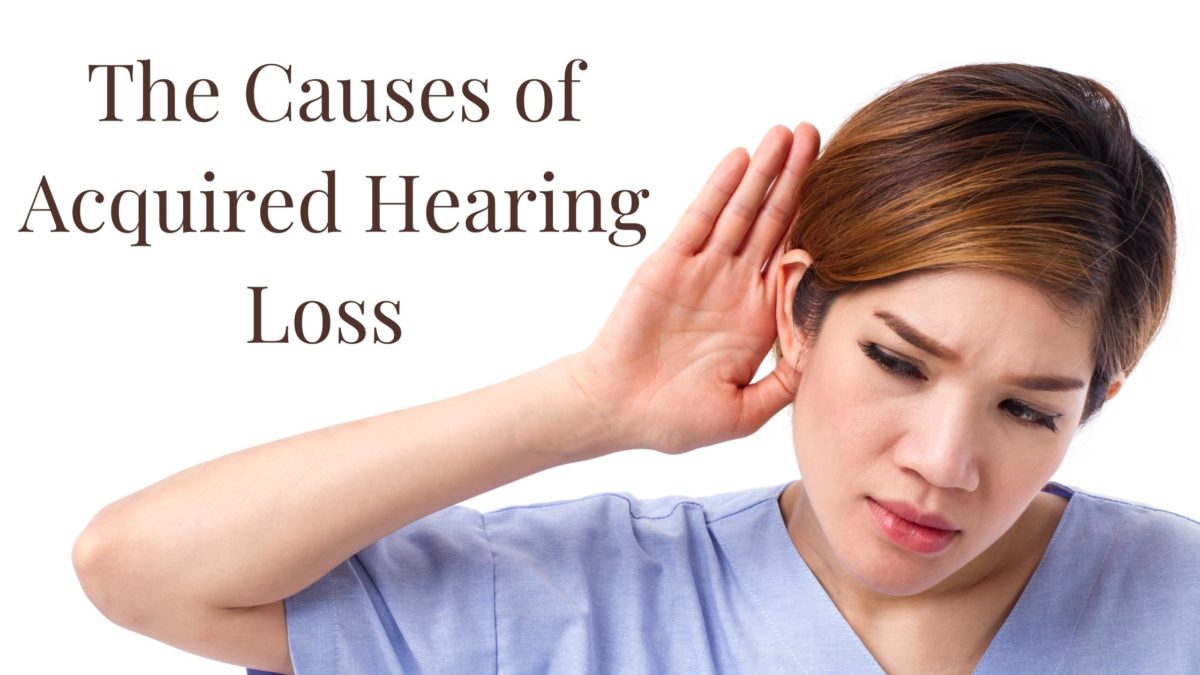Today in America there are some 48 million people suffering from some type of hearing loss. While that amounts to over 15% of the population, just 0.5% are born with hearing loss or deafness. While people who are born into hearing loss grow into deaf culture, those who acquire their hearing loss at some point in life may struggle to adjust to their new circumstances. Learning sign language is difficult later in life, and the brain is required to change in ways that can ultimately be cognitively debilitating.
Hearing aids are by far the best and most common treatment for hearing loss. For acquired deafness or profound hearing loss, a cochlear implant can help restore the ability to hear speech to some degree. Once upon a time, we may have thought of hearing loss as an annoying but benign part of getting older. However, decades of research has indicated that acquired hearing loss has a detrimental effect on cognition, memory, and lifestyle and should be treated in the interest of maintaining good overall health and well-being.
Regular Hearing Tests
Most of us don’t know that our hearing ability is declining until it becomes problematic, but hearing loss can be measured long before that point. Early detection of hearing loss can help you find aspects of your lifestyle or work that may be causing your hearing to deteriorate. Once you know your hearing is being affected, you can make changes to prevent further hearing loss.
The Better Hearing Institute, a non-profit organization, recommends that everyone get a hearing test once every decade until age 50, and once every three years after that. If you’re due for a hearing test, make an appointment today and start keeping track of your hearing health.
Age-Related Hearing Loss
By far the most common cause of problematic hearing loss is age. Audiologists argue over whether age-related hearing loss is avoidable or not, one thing that is certain is that it cannot be cured. While there does seem to be a genetic component at play in how much hearing loss a person will have as they age, other audiologists suggest that the typical American diet and other sources of bodily inflammation are a likelier cause of the hearing loss epidemic.
Indeed, a study conducted by the Brigham and Women’s Hospital found that those who closely followed an anti-inflammatory diet were far less likely to develop hearing loss over a four-year period around age 60 than those who ate a more typical American diet.
Whatever the cause may be, statistically over ⅓ of people have hearing loss by the time they reach age 70, and nearly 100% of centenarians have it. It seems that if we live long enough, everyone will acquire hearing loss at some point. If you have started to have trouble hearing as you age, the best course of action is to schedule an appointment for a hearing test and find out if you could benefit from hearing aids. Hearing aids help prevent a cascade of negative health outcomes that can develop easily once hearing loss becomes an issue, and we should start wearing them as soon as they are recommended by an audiologist.
Noise-Induced Hearing Loss (NIHL)
NIHL is incredibly common today. Our environments are generally noisier than they were for the first tens of thousands of years humans have been on the earth. Environmental noise compounded by the effects of earbuds have driven hearing loss up to the point that even 20% of teenagers have measurable hearing loss.
Many people seem to think that only painfully loud sounds cause hearing loss. In fact, even an average noise level of 85 dBA can cause hearing loss after eight hours of exposure. (That’s about the loudness of a lawnmower.) For every additional 3 dBA, the safe time of exposure is cut in half. By the time we hit 100 dBA, only a few minutes of exposure will cause permanent hearing loss. Many of us work in noisy conditions and then leave work into a noisy world. It’s a recipe for hearing loss!
Earplugs or other hearing protection should be worn anytime we know we’re being exposed to noise levels above 85 dBA. It’s also important to keep our personal listening devices at a safe level (well below the maximum available volume) and try to spend some time each day in silence.
Other Causes
Other causes of acquired hearing loss include illness, injury, and side-effects of some medications. There are also over 1,000 chemicals and herbs that are considered ototoxic.
If you’re due for a hearing test, make an appointment today. If you have measurable hearing loss, you can start to consider what the causes may be and try to eliminate them from your routines. Your ears, and your overall health and well-being, will thank you in the long run!

